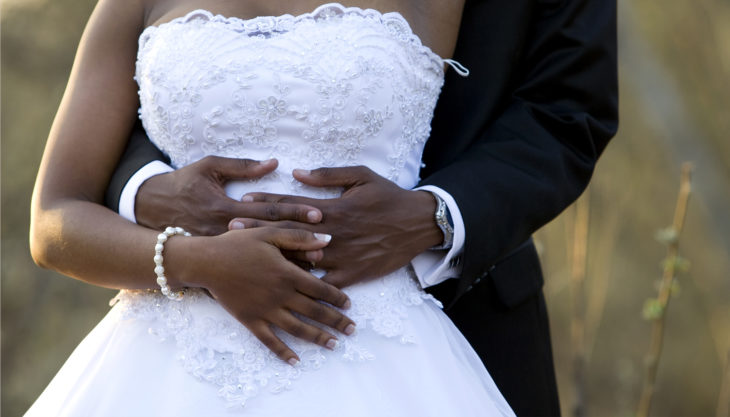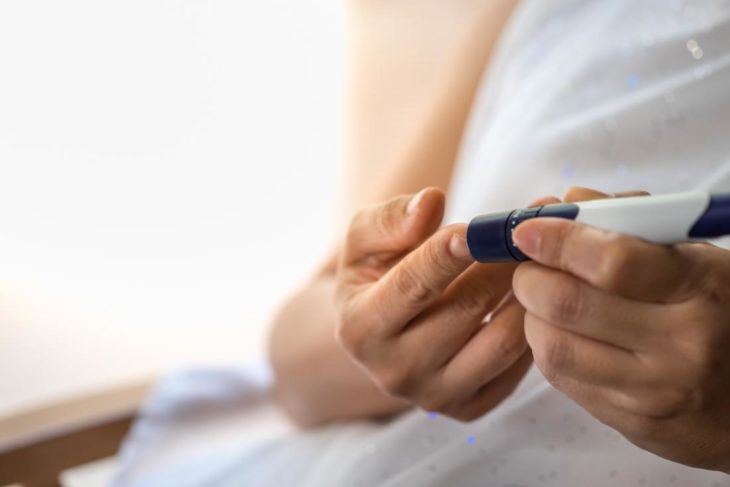Last month, I underwent surgery to determine whether or not I have endometriosis, a disorder in which the uterine lining grows outside of the uterus. For people with endometriosis, the symptoms and prognosis vary greatly, but patients most commonly suffer from pelvic pain and, in some cases, infertility. The only way to diagnose it is with laparoscopic surgery, which I decided to try, after years of pain that felt like menstrual cramps on steroids.
As I began to emerge from my post-surgery, anesthesia-induced state, I heard bits and pieces of conversation around me. I’m not sure who it was—perhaps my doctor and my mom (my fiancé and I elected her to be the one person allowed in the recovery room immediately after the procedure because, as a physician, she’d understand everything the doctor had to say)—but I’m fairly certain I heard mention of endometriosis. Once I was lucid enough to speak, I asked my mom to confirm. She told me the doctor did indeed find endometriosis, and I immediately started crying. The tears were definitely more a product of the drugs than anything else, but I was overwhelmed nonetheless. I realized, in that moment, that I never actually believed they’d find anything during the surgery, so I never really thought about what would happen next if they did.

Source: Fox News
There’s no cure for endometriosis, but there are plenty of treatment options to help stave it off and minimize symptoms. In the hospital immediately following my laparoscopy, I learned my doctor wanted to move forward with one such option: A hormone treatment in the form of intramuscular injections. I’ll receive six monthly injections of medication to stop my body from producing estrogen, which will keep the uterine tissue from growing and, in turn, keep the endometriosis at bay. The catch? These injections will put my body into a temporary menopausal state, which, from what I’ve heard, is no picnic. Though, that day in the hospital, my brain was still way too cloudy to fully understand the treatment process, my first thought after learning this was, It has to wait.”
I’ve spent nearly two years carefully planning and looking forward to my wedding. It’s going to be an amazing, romantic, and exciting day. And I don’t want to ruin it with hot flashes. Or hormonal mood swings. Or any other symptoms I might experience as a result of this medication. I expressed this to my mom in the hospital (granted, in a groggier and less wordy manner—it was more like, “I don’t want to be on that during our wedding!”), and she communicated my concern to my doctor after I had slipped back into a morphine-assisted nap. He told her I can wait to start the injections until after the wedding, and even though I wasn’t present for the conversation, I accepted that as enough information until my post-op appointment two weeks later.

Source: The Epoch Times
At that appointment, I got more information on the treatment plan and how it may or may not affect me. He explained I might not experience any symptoms, but if I do, hot flashes are the most likely. And after I once again expressed I didn’t want to risk any of that during my wedding day (which, at the time, was a mere two-and-a-half months away), he assured me that would be fine. I understand my health is more important than my wedding, and if he had told me it’s crucial to start the treatment right away, I would have listened to him. But the fact of the matter is, he didn’t and it isn’t.
When the doctor found the offending endometrial implants and scar tissue during my surgery, he removed it right then and there (partially by cutting it out and partially by destroying it with a laser). So, as of now, my uterus and surrounding organs are endometriosis-free. The injections will ideally keep the endometriosis from returning, but I can only receive them for six months before things like bone density (osteoporosis is another possible side effect) become a concern—so it’s not like I’m going to start the treatment then continue it forever, anyway. In the couple months before I begin, I’ll be taking a super low estrogen birth control, which will help keep that uterine lining thin. And after I’m done with the treatment, I’ll need to do something else (likely an IUD) that’ll have the same effect.

Source: Medical News Today
Some people may be surprised when I say I’m postponing treatment until after my wedding, but those people don’t have all the information. I’m already taking the suggested precautions to keep my endometriosis at bay, so whether I start one specific component now or two months from now doesn’t really have a bearing on my health or my life with this disorder. When it comes down to it, I’m taking care of myself as needed, but I’m also damn well going to do everything I can to have a happy and carefree wedding day with memories of marrying my best friend and celebrating the moment with loved ones—not of feeling like I’m in a mobile sauna.
Original by: Emma Sarran
